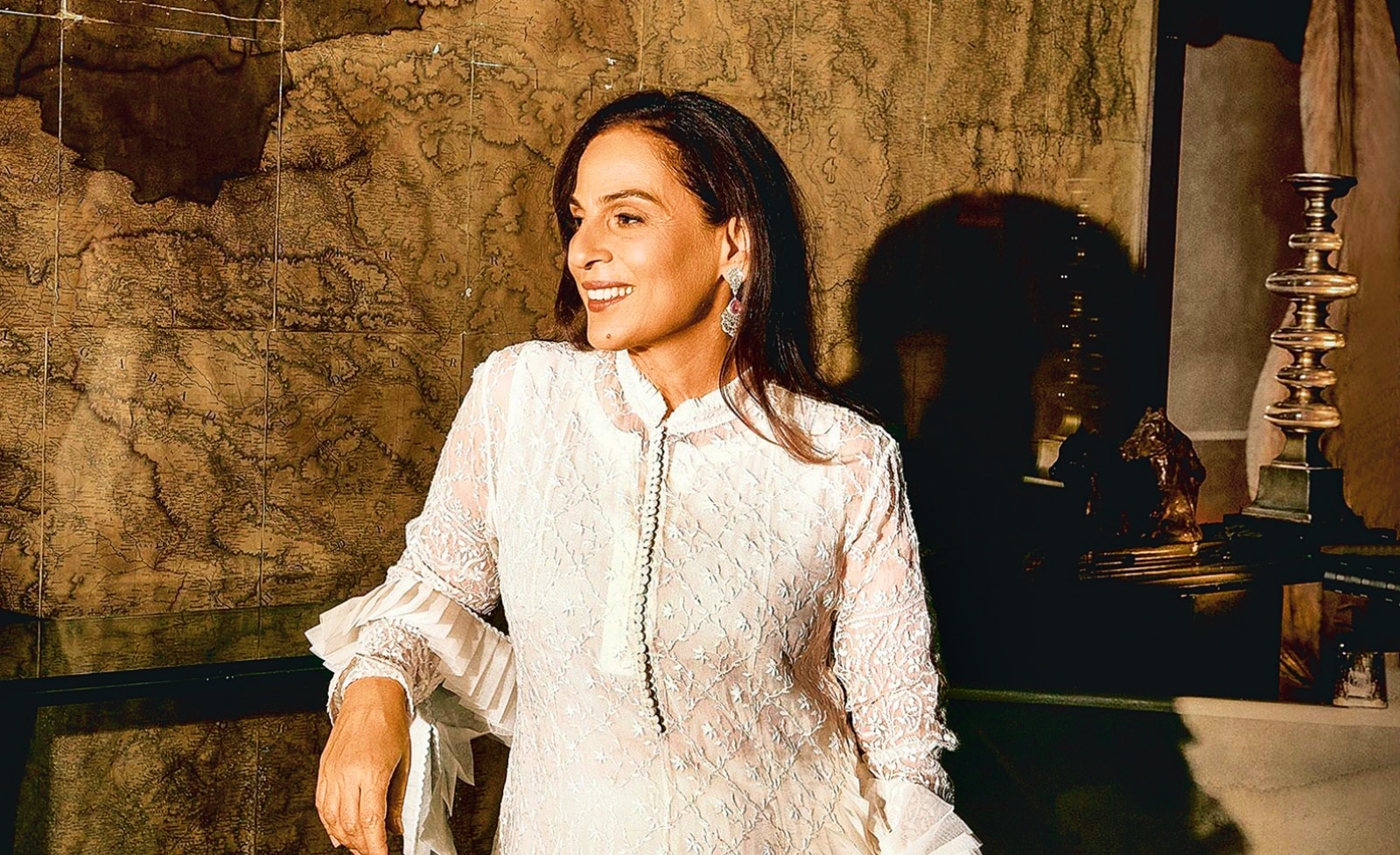From my kitchen: Meera Muzaffar Ali, architect, fashion designer, craft and culinary revivalist, on the best meal of her life — Kotawara family’s Dum Pukht Mutton
Dum Pukht means “to breathe and cook”, and its story begins in 18th-century Awadh, under the reign of Nawab Asaf-ud-Daula
 Awadhi Dum Pukht Mutton, a Kotwara family favourite
(Photo: PR handout)
Awadhi Dum Pukht Mutton, a Kotwara family favourite
(Photo: PR handout)I was introduced to the Dum Pukht Mutton of the Kotwara family (Meera is married to the Raja of Kotwara and filmmaker Muzaffar Ali) soon after my wedding when it was cooked as a special treat. The chef at Kotwara House in Lucknow was an old retainer, Nooran, whose family has been with Muzaffar’s family over generations. She took me into the old kitchen where it was cooked on a wood fire chullah, sat me down on a wooden stool and watched my expressions as I ate while getting hot rotis off the pan. “The best meals are eaten where they are cooked,” she told me. It was the best meal of my life. After she passed, her daughter Rehana took over our lives and cooked even better than her own mother.
It seemed rather a simple recipe to make. And that’s when I realised that it wasn’t and that preparation was the real secret, that there were no shortcuts. You have to master the skill of blending and grinding the spices just right, in the right proportion and in the right texture and consistency. Family cooks will tell you that more than a recipe, the Dum Pukht Mutton symbolises a philosophy of patience, restraint and refinement.
Dum Pukht means “to breathe and cook”. It is about food that breathes in its own sealed aroma as it is cooked slowly over a low flame in a pot, the lid of which is often sealed with dough. The meat, rice and spices meld in their own aromas. The story of Dum Pukht begins in 18th-century Awadh, under the reign of Nawab Asaf-ud-Daula. Legend has it that huge deghs were left to simmer for hours to feed workers during a famine and when the lids were finally lifted, the fragrance changed everything. What began as humble sustenance evolved into royal cuisine, refined in the kitchens of Lucknow with delicate layering of meats, rice, saffron and attar.
Dum Pukht means “to breathe and cook”. It is about food that breathes in its own sealed aroma as it is cooked slowly over a low flame in a pot, the lid of which is often sealed with dough. The meat, rice and spices meld in their own aromas. The story of Dum Pukht begins in 18th-century Awadh, under the reign of Nawab Asaf-ud-Daula. Legend has it that huge deghs were left to simmer for hours to feed workers during a famine and when the lids were finally lifted, the fragrance changed everything. What began as humble sustenance evolved into royal cuisine, refined in the kitchens of Lucknow with delicate layering of meats, rice, saffron and attar.
 Meera Muzaffar Ali (Photo: PR handout)
Meera Muzaffar Ali (Photo: PR handout)
Awadhi Dum Pukht Mutton
Serves 8 | Preparation time 30 mins
Cooking time 1 1/2 hours
Ingredients
- Mutton 1 kg
- Cooking Oil 1/2 cup
- Curd 500 g (keep aside)
- Cumin 1/2 tsp
- Cinnamon 1 stick about 1.5 inch
- Mace 1 inch piece
- Nutmeg 1/2 a piece
- Black cardamom 2
- Green cardamom 4
- Bay leaf 1
- Cloves 3
- Red chilli powder 1/2 tsp
- Rose water 1 tbsp
- Cashewnuts 3 pieces
- Onions 4 large
Method
- Heat oil in a pan
- Fry the meat. Add rose water
- Add the curd and keep frying
- In a muslin cloth, place roughly ground nutmeg, mace, black and green cardamom, cloves, cinnamon and bay leaf, cumin, and red chilli powder and tie with a thread. Add this spice muslin bag to the mutton along with salt and keep frying
- Add the cashew nuts, finely ground
- Slice the onions and fry separately in oil. Grind into a paste with 1/2 cup curd in
a blender. Add to the mutton - Cook on low heat. It may be advisable to place a tawa under the cooking pan. May take about 45-60 minutes
- Lastly, scoop out the muslin bag, squeeze the juices into the dum pukht and discard the bag
- 01
- 02
- 03
- 04
- 05































